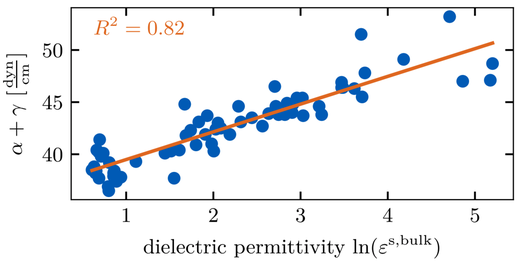Generalized molecular solvation in non-aqueous solutions by a single parameter implicit solvation scheme

Abstract
In computer simulations of solvation effects on chemical reactions, continuum modeling techniques regain popularity as a way to efficiently circumvent an otherwise costly sampling of solvent degrees of freedom. As effective techniques, such implicit solvation models always depend on a number of parameters that need to be determined earlier. In the past, the focus lay mostly on an accurate parametrization of water models. Yet, non-aqueous solvents have recently attracted increasing attention, in particular, for the design of battery materials. To this end, we present a systematic parametrization protocol for the Self-Consistent Continuum Solvation (SCCS) model resulting in optimized parameters for 67 non-aqueous solvents. Our parametrization is based on a collection of $≈$6000 experimentally measured partition coefficients, which we collected in the Solv@TUM database presented here. The accuracy of our optimized SCCS model is comparable to the well-known universal continuum solvation model (SMx) family of methods, while relying on only a single fit parameter and thereby largely reducing statistical noise. Furthermore, slightly modifying the non-electrostatic terms of the model, we present the SCCS-P solvation model as a more accurate alternative, in particular, for aromatic solutes. Finally, we show that SCCS parameters can, to a good degree of accuracy, also be predicted for solvents outside the database using merely the dielectric bulk permittivity of the solvent of choice.